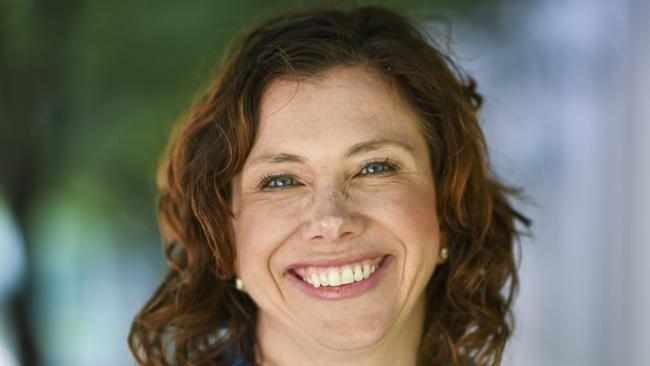Doctors urged to ‘celebrate autistic kids’ neurodiversity’
Parents and doctors will be urged to ‘affirm the neurodiversity’ of autistic children and told not to try to ‘cure’ them in the first national guidelines.

Parents and doctors will be urged to “affirm the neurodiversity” of autistic children and told not to try to “cure” them in the first national guidelines on how to support young people on the spectrum.
The guidelines, released on the eve of the Early Years Summit on Friday, include more than 80 recommendations developed by the Autism Co-operative Research Council, which received $2m from the government last year to help it develop guidelines and a national autism strategy.
Among the recommendations for practitioners, including speech pathologists and paediatricians, are directions to embrace an autistic child’s uniqueness rather than try to change it.
“Supports should be neurodiversity-affirming, embracing each child’s unique understanding of other people and the world around them, without seeking to ‘cure’ autism,” the guidelines, seen by The Australian, read.
About one in 70 Australians have autism, with more than 50 per cent of participants under 18 on the National Disability Insurance Scheme diagnosed with the condition.
“Many autistic children experience challenges to their learning, participation and wellbeing,” the guidelines stated. “These challenges … are often most effectively addressed through a combination of supporting children’s development of functional and personally meaningful skills; supporting families and those around them to nurture their growth; and creating safe, accessible, enjoyable spaces.”
Other recommendations include providing supports to help the child “develop motor skills and functional movement that is meaningful, assists with daily activities, and enhances participation in activities of their choice”.
Supports need to be developed with the goals of the child and parents in mind, the guidelines state, while allowing the child “to say no” to supports should they choose.
“Each child has the right to say no to supports and their … expression of approval should be sought and respected, whether they communicate using words or in other ways,” the guidelines said.
“Supports should honour the goals and activities of childhood including play, relationships and personal discovery.”
Social Services Minister Amanda Rishworth said release of the guidelines came ahead of a national autism strategy that would shape future government policies on how best to support people with the condition, but would not put a date on the strategy’s release.
“Our government has a clear, dedicated vision to improve the lives of all autistic people,” she said.
“By working with the autism community and making sure their voices are at the centre of policy-making, we are committed to improving research and supports and ensuring no one is left behind.”
Health Minister Mark Butler said the guidelines were developed with practitioners and researchers, as well as autistic adults to incorporate lived experience into the document.
“The guidelines will help practitioners in the development and delivery of evidence-based supports,” he said.
Among the more than 100 delegates at the Early Years Summit on Friday will be philanthropist Nicola Forrest and Telethon Kids Institute Bennett Chair of Autism, Andrew Whitehouse.
Children’s Commissioner Anne Hollonds, who is also attending the summit, said early intervention in diagnosis and treatment for children with autism was crucial.
“What really needs to happen is that knowledge that (researchers) have needs to be put in the hands of early childhood educators and maternal and child health nurses – we need to get it out there, so we can pick up issues much, much earlier,” she said.




To join the conversation, please log in. Don't have an account? Register
Join the conversation, you are commenting as Logout